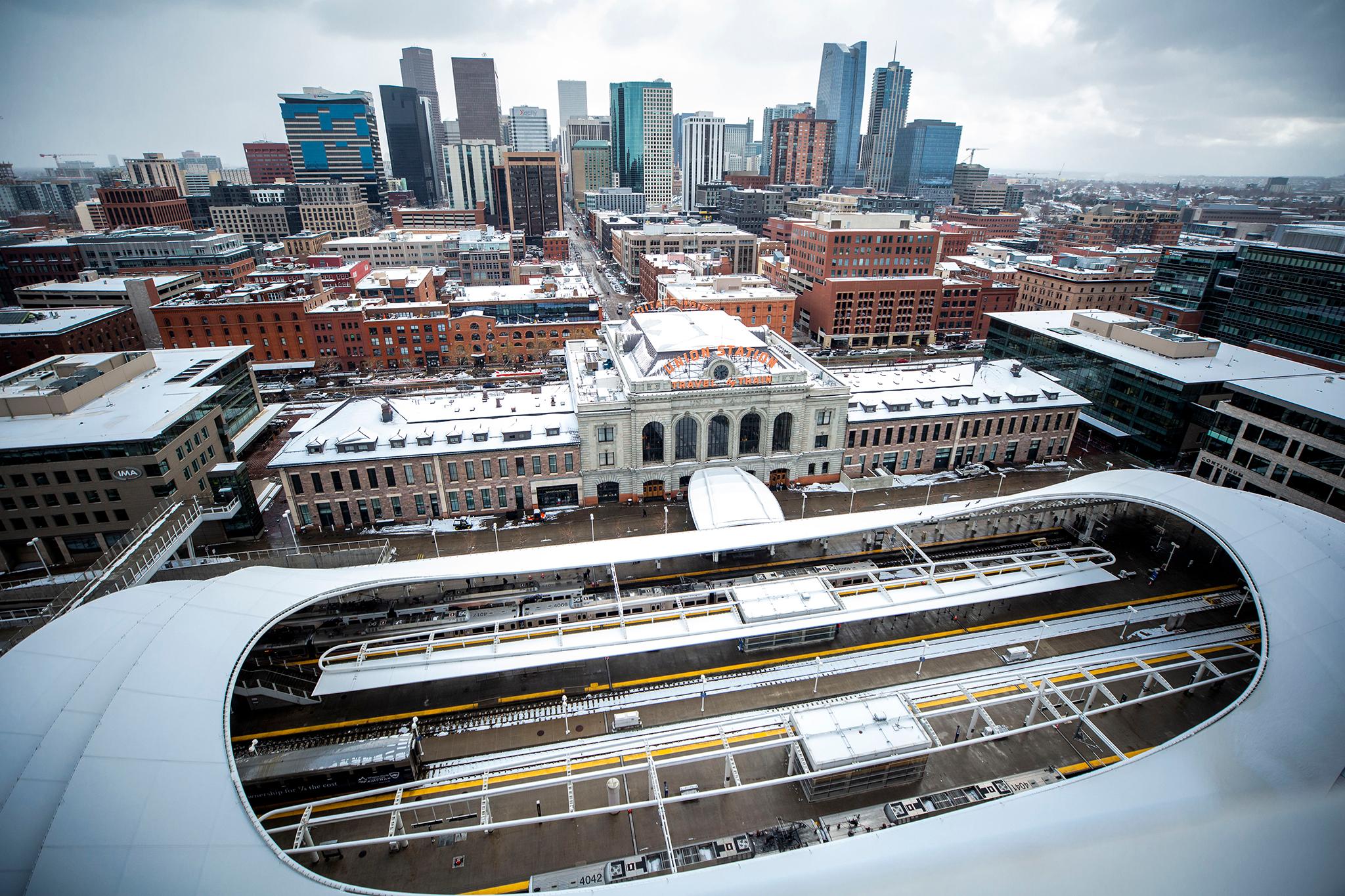The Union Station bus concourse, which has been serving as a de facto day shelter for unhoused people since the city shuttered Civic Center Park in the summer, has also been the subject of many reports about drug use, harassment and unsanitary and lawless conditions.
Community organizations like Safe, Clean and Compassionate Committee of the Lower Downtown Neighborhood Association, the RTD drivers union and residents of a nearby condo, the Coloradan, have called for a more aggressive response by police.
Now, these groups are getting their way. The Denver Police Department has arrested 500 people since Jan. 1.
The department conducted its largest arrest operation yet at the Union Station bus concourse on Wednesday in an effort to crack down on the proliferation of property and drug crimes, according to a statement from DPD. A total of 42 people were arrested; 10 for felony offenses and the other 32 for outstanding misdemeanor warrants and drug crimes.
"The Denver Police Department, Mayor Hancock, and City partners have vowed to address illegal activity and other challenges at this vital transportation and business hub, and yesterday's arrests demonstrate our commitment to curbing crime and making this space safe for everyone," said Denver Police Chief Paul Pazen, in a statement. "Our ongoing efforts will continue to focus on violent, property and narcotics-related crimes in the area, with an emphasis on holding accountable individuals who prey upon those suffering from addiction."
Earlier this month, Pazen and Hancock announced a crackdown on crime across Denver.
"Folks coming from the A Line and seeing our city, we need to make sure that those travelers feel safe, that our folks who utilize public transportation, that they feel safe," said Pazen at a press conference announcing the plan. "And we are helping individuals that may be battling substance abuse and mental-health challenges."
But on Wednesday's crackdown, as the 42 people were being arrested and temperatures hit brutal lows, just 10 others on site were contacted by DPD's outreach case coordinator. That's a quarter of the number that was locked up.
Those 10, who needed help, were given information about services and resources, DPD explained.












